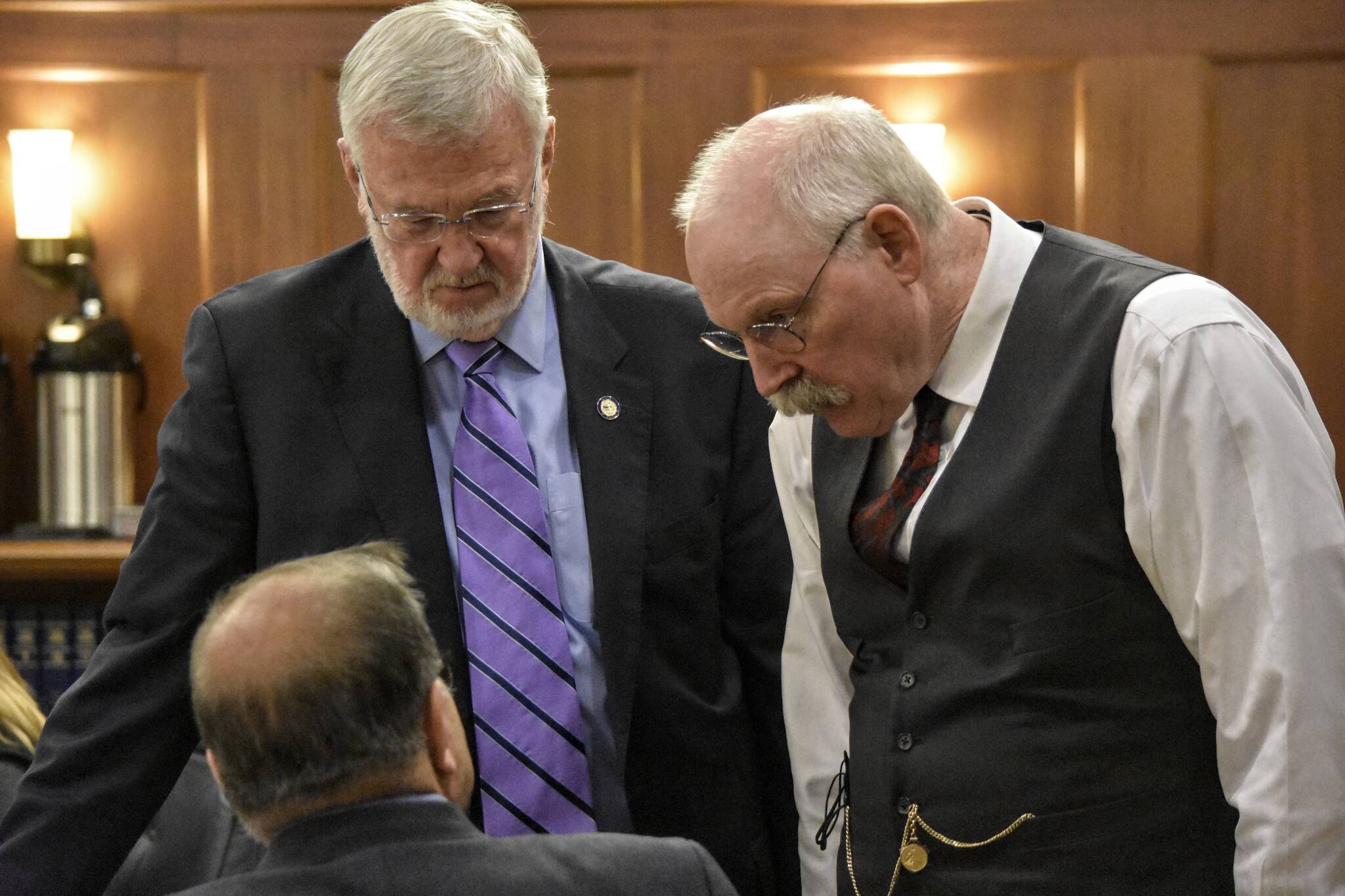The Alaska State Senate Tuesday afternoon passed an omnibus budget bill for the state, after adding close to $1 billion in amendments on the floor. The bill will now go to the Alaska House of Representatives, but its final details are expected to be negotiated in a bicameral conference committee.
On Monday, senators voted for Permanent Fund dividend based on the statutory formula — roughly $4,300 — and an energy relief payment of $1,300 for a combined payment of $5,600 to eligible Alaskans. To pay for the energy relief checks, senators voted to use money included in the House and Senate Finance Committee versions of the bill to forward fund education for two years.
On Tuesday, senators added another roughly $300 million with $150 million in funding for the Port of Nome, $100 million for the Port of Alaska in Anchorage and $30 million for road projects in the Matanuska-Susitna Borough.
Some senators balked at the amount of money being added to the budget. Sen. Bert Stedman, R-Sitka, who co-chairs the Senate Finance Committee responsible for drafting the bill, noted Tuesday that through floor amendments, senators had gone from having $1.2 billion in savings to potentially being underfunded by $1 billion.
[Senate goes big on PFD in budget debate]
Sen. Mike Shower, R-Wasilla, argued on the floor that the state is looking at large returns from the high price of oil, and should spend money on capital projects while the state had the money to pay for them.
“If not now, when?” Shower asked on the floor.
Shower was able to pass an amendment that said the state would use money from the Statutory Budget Reserve, one of the state’s savings accounts. But opponents to the plan said it was irresponsible to base an amendment off of predictions of $100 barrels of oil.
“No one can predict the price of oil and to create a budget that depends on $100 oil, in my view is reckless,” said Sen. Natasha von Imhof, R-Anchorage.
Sen. Jesse Kiehl, D-Juneau, said he supports the PFD program but this year’s amount was too much.
“I can’t call myself a good steward of Alaska’s money if we’re passing a budget which at $100 a barrel of oil draws on savings,” Kiehl said.
Despite criticism of the amount of money added to the bill, the bill passed 15-5, with senators who were critical of the spending voting in favor.
The only senators to vote against the budget were Sens. Tom Begich, D-Anchorage; Lyman Hoffman, D-Bethel; Josh Revak, R-Anchorage; Kiehl and von Imhof.
Shortly after senators passed the budget, House Speaker Louise Stutes, R-Kodiak, told reporters the bill needed to wait 24 hours before being taken up in the House. Stutes said the current plan was to take up the bill Wednesday afternoon or Thursday morning.
It’s possible the House could vote to concur with the Senate’s proposals, and the budget would be passed. However, if the House isn’t able to get enough votes to pass the budget, the bill will be negotiated in a conference committee, typically made up of the finance committee co-chairs from each body, and one member of the minority from each body.
Senate President Peter Micciche, R-Soldotna, told reporters he expected the Senate to choose its conference committee members on Wednesday. Micciche also said he expected the amount of money in the budget to come down in negotiations.
“The reality of (the budget bill) staying in its final form is essentially nonexistent,” Micciche said.
That process could take some time, and run lawmakers close to the May 18 end of session.
• Contact reporter Peter Segall at psegall@juneauempire.com. Follow him on Twitter at @SegallJnuEmpire.

